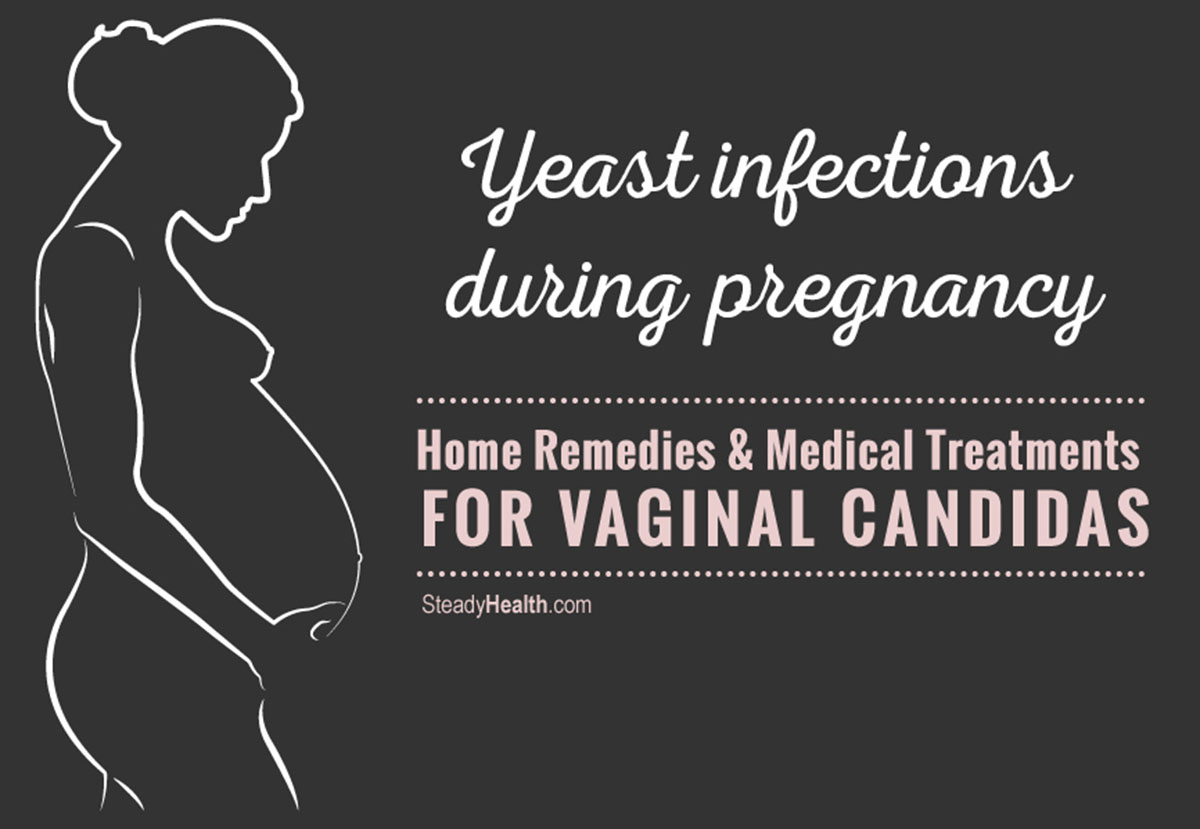Most women — three out of every four — will experience a vaginal yeast infection, medically referred to as vulvovaginal candidiasis, at least once during their lives [1]. You're more vulnerable to yeast infections during pregnancy, probably because of your higher estrogen levels and increased amounts of glycogen, a sugar, in the vagina [2]. As if all that morning sickness, tiredness, constipation, bloating, heartburn, and general feeling like a whale wasn't enough, right?
The signs of a yeast infection include:
- Itching and burning sensations around the vagina and vulva.
- Changes in vaginal discharge. While normal vaginal discharge during pregnancy is more likely to be slightly watery, the discharge associated with yeast infections is white, thick, and creamy — rather a lot like cottage cheese.
- Your vagina and vulva are likely to be red and sore if you have a yeast infection.
- You may experience pain or discomfort during sexual intercourse. [3]
If you notice the tell-tale yeast infection symptoms during pregnancy, you'll have a lot of questions — do yeast infections during pregnancy pose a danger to your baby, what yeast infection treatments will your OBGYN offer you, and can you successfully complete yeast infection treatment at home, using one of the home remedies for a yeast infection found online or recommended by a friend or relative?

Who Is Most Likely To Get A Yeast Infection During Pregnancy?
Pregnancy is itself a major risk factor for vulvovaginal candidiasis: around 10 percent of all pregnant women will have vaginal yeast overgrowth when they're about halfway through their pregnancies. Most yeast infections during pregnancy are caused by Candida albicans, but other species, such as Candida glabrata or Candida tropicalis, can also be responsible for vaginal yeast infections during pregnancy or at any other time.
You're statistically more likely to develop a yeast infection during pregnancy if you are:
- Black
- Hispanic
- Unmarried
- A previous user of hormonal contraceptives [4]
- Already a mother, and thus experiencing a subsequent pregnancy [5]
Are Yeast Infections During Pregnancy Dangerous To Your Baby?
Research indicates that yeast infections during pregnancy do not increase your risk of preterm labor or a low birth weight baby [4]. The antifungal medications and topical corticosteroids used to treat yeast infections during pregnancy are not associated with birth defects either [2].
While such a transmission may cause nothing more than harmless oral thrush in babies, invasive candidiasis — which can be deadly — is a possibility, especially in infants who were born very prematurely, have a very low birth weight, or who are HIV-positive. [7, 8]
Yeast Infection Treatment During Pregnancy
If you approach your doctor about a suspected yeast infection during pregnancy, the diagnosis will often be made simply using a physical examination. However, since other conditions, such as bacterial vaginosis, may present with similar symptoms as the symptoms of a yeast infection, you may want to specifically ask your doctor to take a swab and send it off for lab testing.
Antifungal medications used in the treatment of yeast infections during pregnancy include:
- Imidazole antifungals such as butoconazole, clotrimazole, and miconazole.
- Triazole antifungal medications such as fluconazole and terconazole.
- Nystatin. [2]
These medications for yeast infection treatment are available orally and as topical medications, but it's important to keep in mind that topical antifungals have been studied in pregnant women and are considered to be safe [9], while high doses of oral fluconazole have specifically been associated with birth defects [10]. Lower doses may still be considered in pregnant women whose yeast infections do not respond well to other treatment, and these lower doses have not been associated with any negative pregnancy outcomes [11].
In addition to antifungal medication, your doctor may recommend that you use topical corticosteroids to relieve the vaginal and vulval itching and soreness you may be experiencing as the result of your yeast infection during pregnancy. Discuss the risks and benefits with your doctor, but know that topical corticosteroids are generally considered safe for use in pregnant women. [13]
Finally, if you're close to your due date or already in labor, you may be offered prophylaxis. Newborns who are especially at risk of invasive, systemic, candidiasis will be given the same. [6]
Can I Complete My Yeast Infection At Home Using Natural Yeast Infection Remedies?
One "natural yeast infection treatment" that is especially of note is boric acid. Some concerns have been raised about its safety during pregnancy, with suggestions that vaginal use of boric acid during can lead to birth defects, however, the data was not statistically significant. [14] This does mean that you want to discuss the advantages and risks of using boric acid as a yeast infection treatment very carefully with your healthcare provider before going this route, and you will want to reserve it for situations in which other yeast infection treatments have proven to be ineffective. (Should you want to have a chat with your doctor about using boric acid to treat a yeast infection during pregnancy, you may wish to inform them that 600 mg is usually applied intravaginally for two weeks [15].)
A vaginal cream that contains garlic, such as the the Vagina Pro™ Garlic Vaginal Defense Cream, may be as effective in treating yeast infections as azole antifungal creams [15]. Do not, however, insert raw cloves of garlic into the vagina as this may cause irritation.
You may use Lactobacillus probiotics during pregnancy to prevent the onset of yeast infections. While probiotics cannot be considered to be a yeast infection cure by themselves, they have also, however, been shown to make conventional antifungal treatment for vaginal infections more effective. [16]
Other natural yeast infection treatments that show promise are oregano oil [17], coconut oil [18], and tea tree oil [19].
- Photo courtesy of SteadyHealth.com

